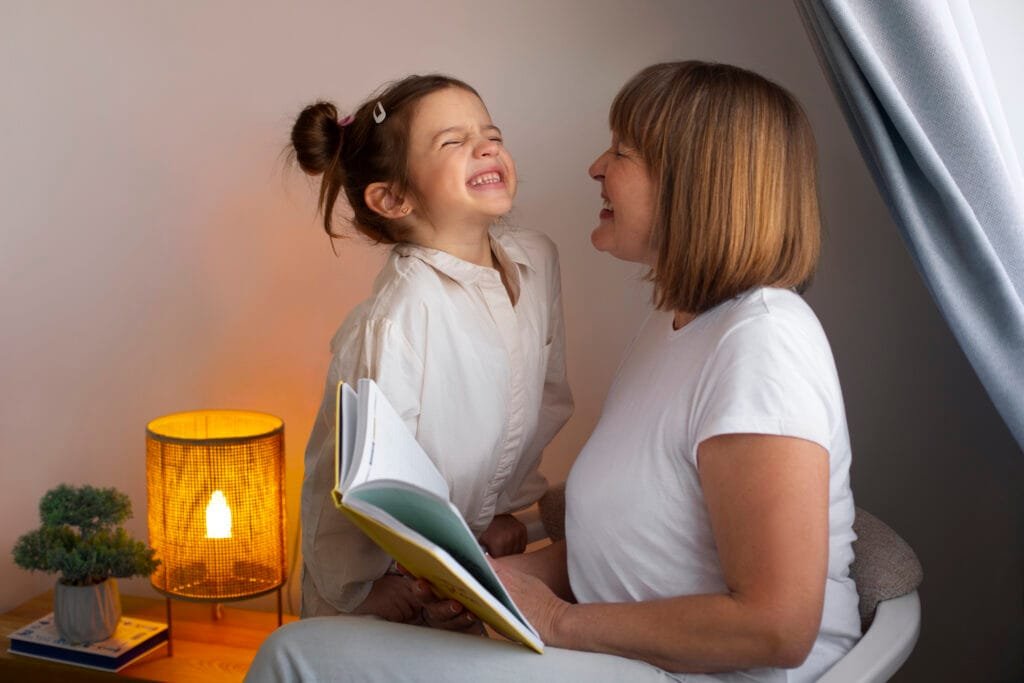Are you an adoptive parent looking to form a deeper, more secure bond with your child? Mindfulness can be a powerful tool to help you navigate the unique challenges and joys of adoption. This article shares practical mindfulness strategies to enhance connection, communication, and wellbeing in your adoptive family.
Benefits of Mindfulness in Adoption
Mindfulness, the practice of bringing caring awareness to the present moment, offers numerous benefits for adoptive families:

- Reduces stress and anxiety. Adoption involves many uncertainties that can trigger stress. Mindfulness helps calm the nervous system, allowing you to relax and regulate emotions more easily.
- Helps you respond rather than react. Mindful awareness creates space between a triggering event and your response. This allows you to choose a skillful reaction rather than an automatic one you may later regret.
- Allows you to be fully present with your child. Adoption comes with paperwork, appointments, and endless to-dos. Mindfulness helps you set all that aside and give your full attention to your child in the moment. Presence is one of the greatest gifts we can offer.
- Enhances empathy and understanding. Mindfulness increases awareness of your own thoughts, feelings, and body sensations. This self-attunement is the foundation for attunement with others. As you better understand your inner world, your ability to empathize with your child’s experience grows.
- Provides tools for self-care. Adoptive parenting is rewarding but depleting. Having mindfulness practices like breathing, body scans, or walking meditations in your self-care toolkit can help you replenish so you can be the parent you want to be.
As mindfulness expert Kristen Race, Ph.D., says:
“The real gift of mindfulness is that it allows us to respond thoughtfully rather than react emotionally.”
This is so key for adoptive parents.
Mindful Breathing for Connection
One simple yet profound mindfulness practice is mindful breathing. Here’s how to practice it with your child:
- Invite your child to sit comfortably with you. Come to the practice with a spirit of curiosity and playfulness rather than forcing it.
- Place your hands on your bellies. This belly breathing stimulates the vagus nerve, activating the parasympathetic “rest and digest” state.
- Breathe in deeply through the nose for a count of four. Encourage your child to breathe in through their nose if they can, as nasal breathing has added calming benefits.
- Exhale slowly through the mouth for a count of six. Make your exhale longer than your inhale to release tension.
- Notice the gentle rise and fall of your hands with each breath. Bringing mindful awareness to the physical sensation anchors you in the present.
- Continue for a few minutes, or as long as your child is engaged. End by sharing an appreciation, hug, or smile to savor your moment of co-regulation.

Your inner critic mind might pipe up with doubts: “This is pointless, I’m doing it wrong, my kid hates this.” Thank this part of you for trying to protect you and refocus on your breath and child. With practice, this inner critic voice quiets, and your mindful observer grows stronger.
This simple practice of breathing together offers a powerful way to calm your nervous systems, cultivate present moment awareness, and synchronize with your child.
Fascinating research by Dacher Keltner, Ph.D. at UC Berkeley shows that when parents and children breathe and move in unison, their heart rates and brain waves actually sync up! These findings suggest that mindful breathing together may help adoptive families get “in synch” and develop secure attachment.
Mindful Listening
Another key mindfulness practice for adoptive parents is mindful listening. Adoptees’ stories are often filled with big feelings and tough parts that can be hard for them to share and painful for parents to hear. Mindful listening helps you stay present and open so your child feels safe to share. Here’s how:
- Create space for sharing, whether it’s a daily check-in, bedtime chat, or car ride.
- When your child is talking, give your full attention. Set phones and devices aside.
- Make gentle eye contact if it’s comfortable for your child. Some adoptees may prefer to share while engaging in an activity together instead.
- Notice if your mind wanders to worries, judgments, or your own triggered emotions. These are normal reactions. Name them and then gently redirect your focus back to your child.
- Reflect what you’re hearing, validate your child’s feelings, and thank them for sharing. You don’t need to agree with their perspective or fix anything. Your goal is understanding.
Adoptees need to feel truly seen and heard, especially by their parents. When you offer your child your full, accepting presence, you communicate that they are worthy of love and belonging, no matter what.
If your inner critic doubts your ability to listen well, remember that mindful listening is a practice. No one does it perfectly. What matters most is your intention and effort to understand your child’s inner world. Keep showing up with curiosity and compassion.

As mindful parenting author Rebecca Rolland notes,
“One of the greatest gifts we can give is to listen with an open heart.”
This vulnerable kind of listening builds trust, safety, and connection – the very foundation adoptive families need to thrive.
Reaping the Rewards of Mindful Parenting
The mindfulness practices of breathing and listening may seem simple, but don’t let that deceive you. Small moments of mindful connection, practiced regularly, can create a profound shift in your relationship over time.
By bringing mindful presence to your interactions, you develop the responsive, attuned parenting that enables adopted children to build secure attachment and resiliency. You teach them that difficult experiences can be met with care and calm. And you send them the powerful message that they don’t have to earn your love and attention – they have it just by being who they are.
Of course, parenting mindfully takes practice and support. Even the most dedicated mindful parents get dysregulated and disconnected sometimes. That’s why I offer private online mindfulness coaching sessions tailored for adoptive parents.
In these sessions, you’ll have a safe space to share your unique parenting challenges and learn personalized mindfulness strategies to meet them. You’ll build resilience and self-compassion to manage the inner critic. And you’ll feel supported in your parenting journey by someone who understands the distinct joys and challenges of adoptive families.

Benefits of private mindful parenting coaching include:
- A stronger, more secure attachment with your adopted child
- Increased confidence and satisfaction in your parenting
- Tools to stay calm, present and responsive when triggered
- Improved family communication and connection
- Renewed energy and joy for parenting and life
One adoptive mom who completed mindfulness coaching shared: “This is the best investment I’ve made in my family. I’m handling meltdowns so much better, my daughter is opening up to me more, and I actually feel proud of the mom I am. I’m so grateful for this support.”
If you’re ready to experience the transformation that mindfulness can bring to your adoptive family, I would be honored to guide you. Book your first session today and let’s take the first step together toward more calm, connection, and confidence in your parenting. Your family is worth it.




